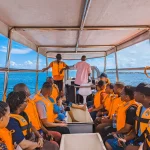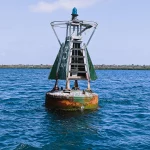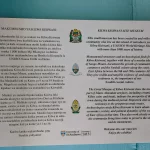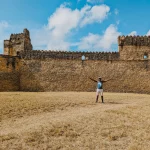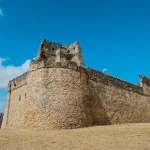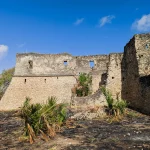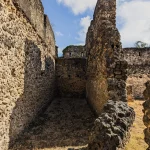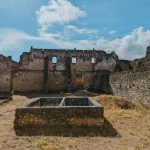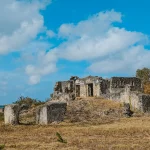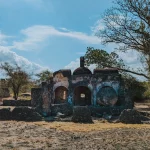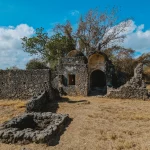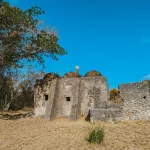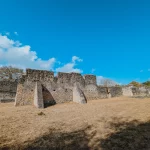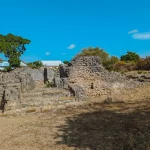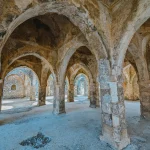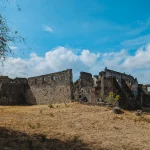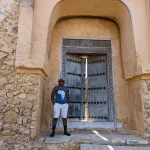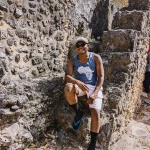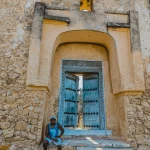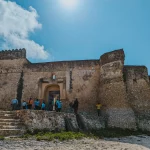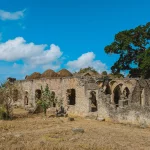Region: Lindi
Access: By boat
Attractions: Kilwa ruins
Activities: History walk, art, culture
Accommodation: Available nearby
Best time to visit: All year round
"The city of Kilwa is amongst the most beautiful of cities and elegantly built.” ― Ibn Battuta, Islamic traveler, 1332
Kilwa is home to the famous archeological and historic island named Kilwa Kisiwani – found on the island part of Kilwa. The town is believed to have been captured around the 8th century AD and grew to become one of the strongest towns along the Indian Ocean trade line
Kilwa Kisiwani was a Swahili trading city, and according to Pollard, Kilwa Kisiwani reached its highest point in wealth and commerce between the 13th and 15th centuries AD. This was mainly attributed to the strong control of the Indian Ocean trade with Asia, Arabia, and India where much of the trade passed through their hands. During this time, the merchants of Kilwa dealt in gold, silver, pearls, perfumes, Arabian crockery, Persian earthenware, and Chinese porcelain
Some of the monumental structures on this island include the Portuguese fort, the Great Mosque – constructed between the 11th and 13th century, cemeteries, Husuni Kubwa and Husuni Ndogo. The remains of this town, along with Songo Mnara, were inscribed on the UNESCO World Heritage List in 1980. Click here to read more
Later on, they were placed on a list of world heritage sites in danger until 2014 when the management of the islands was deemed good enough for them to be removed from the list
Kilwa’s decline began with internal dynasty conflicts, so the city was already weak and unprepared for the Portuguese’s impending entrance into the area in 1505. The Portuguese were aiming to establish a presence and complete control over the rich area trade following Vasco da Gama’s voyage in the late 1400s
The Portuguese attacked and occupied Kilwa (1505 – 1512), leaving many of its buildings in ruins. As a consequence of this presence, inland traders now conducted their business with more northerly Swahili ports such as Mombasa. Kilwa’s importance quickly faded and shortly after it was deserted
During their occupation, the Portuguese also built a fort and used it to punish anyone who resisted their occupation. This fort was later used by the Germans and Arabs as a garrison
Kilwa is home to the famous archeological and historic island named Kilwa Kisiwani – found on the island part of Kilwa. The town is believed to have been captured around the 8th century AD and grew to become one of the strongest towns along the Indian Ocean trade line
Kilwa Kisiwani was a Swahili trading city, and according to Pollard, Kilwa Kisiwani reached its highest point in wealth and commerce between the 13th and 15th centuries AD. This was mainly attributed to the strong control of the Indian Ocean trade with Asia, Arabia, and India where much of the trade passed through their hands. During this time, the merchants of Kilwa dealt in gold, silver, pearls, perfumes, Arabian crockery, Persian earthenware, and Chinese porcelain
Some of the monumental structures on this island include the Portuguese fort, the Great Mosque – constructed between the 11th and 13th century, cemeteries, Husuni Kubwa and Husuni Ndogo. The remains of this town, along with Songo Mnara, were inscribed on the UNESCO World Heritage List in 1980 (Link). Later on, they
were placed on a list of world heritage sites in danger until 2014 when the management of the islands was deemed good enough for them to be removed from the list
Kilwa’s decline began with internal dynasty conflicts, so the city was already weak and unprepared for the Portuguese’s impending entrance into the area in 1505. The Portuguese were aiming to establish a presence and complete control over the rich area trade following Vasco da Gama’s voyage in the late 1400s
The Portuguese attacked and occupied Kilwa (1505 – 1512), leaving many of its buildings in ruins. As a consequence of this presence, inland traders now conducted their business with more northerly Swahili ports such as Mombasa. Kilwa’s importance quickly faded and shortly after it was deserted
During their occupation, the Portuguese also built a fort and used it to punish anyone who resisted their occupation. This fort was later used by the Germans and Arabs as a garrison
The merchants of Kilwa dealt in gold, silver, pearls, perfumes, Arabian crockery, Persian earthenware, and Chinese porcelain
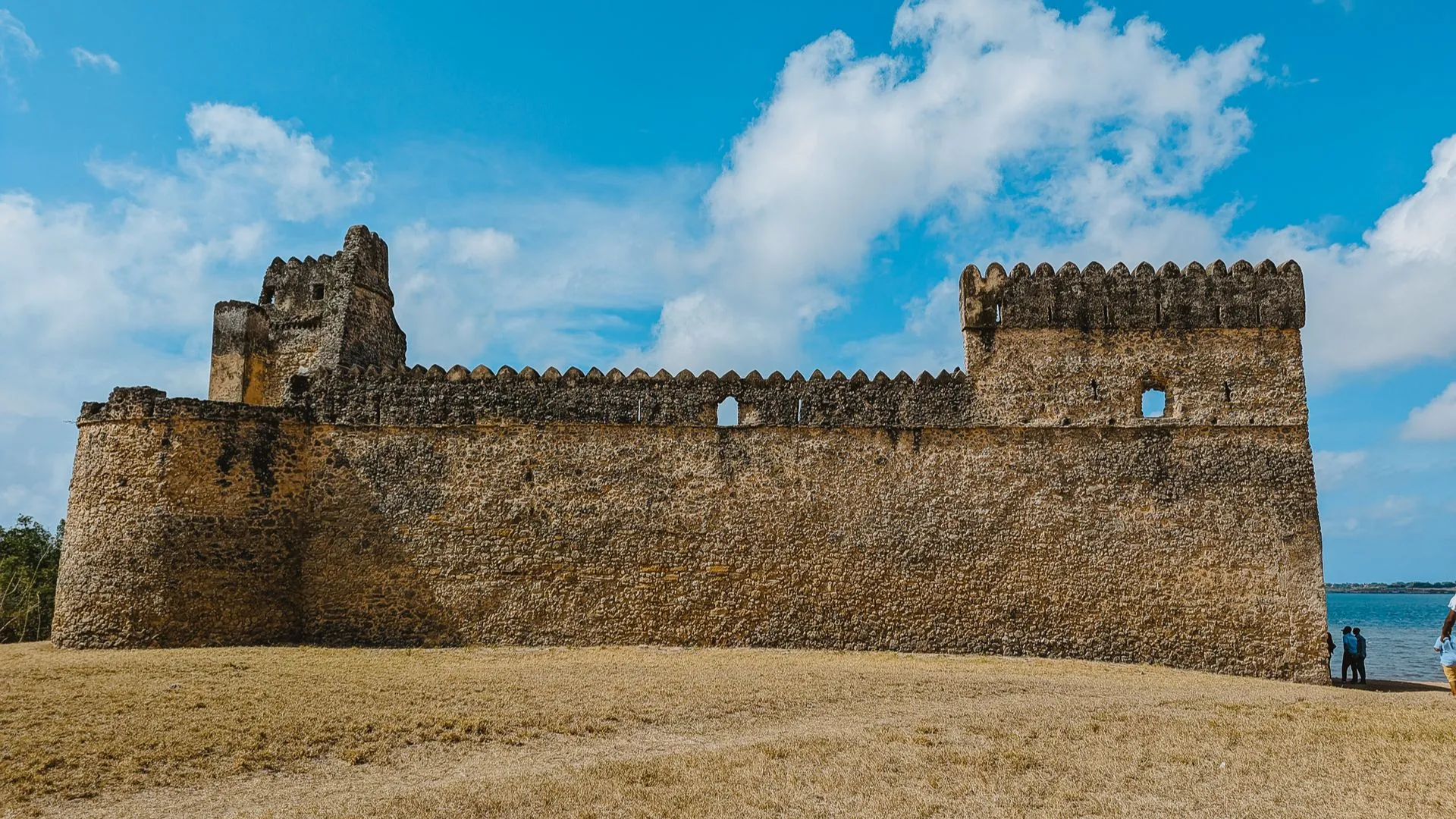
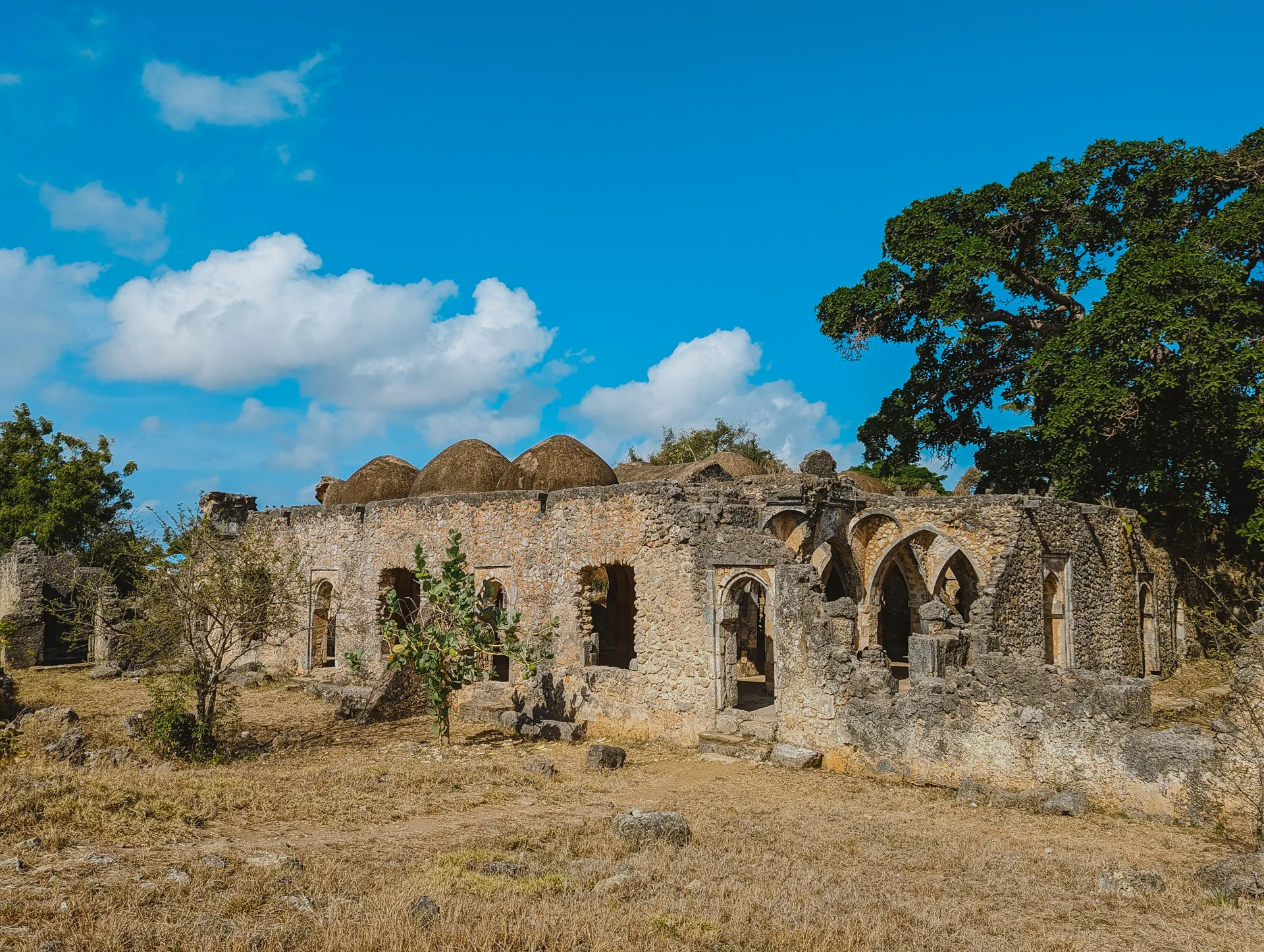
Interesting facts about Kilwa
- The Great Mosque of Kilwa Kisiwani is the oldest mosque still in existence on the coast of East Africa. Its dome was also the largest in East Africa until the 19th century
- Kilwa Kisiwani minted its own coins from the 11th to 14th century. Some of the remains were found in Oman and the ancient city of Great Zimbabwe
- Kilwa is crucial to the Islamization of East Africa and the development of the Swahili culture, dating back as far as the 10th century
- Home to one of the finest architecture pre-colonial era. The “queen’s house” residence, for example, has an octagonal swimming pool, many courtyards, an 18-domed mosque, and around 100 rooms. It was one of Sub-Saharan Africa’s biggest pre-colonial homes.
Getting to Kilwa
Kilwa is found in the Southern part of Tanzania, about 330km from the Dar es Salaam region. The journey takes about 5 to 6 hours by road, with options for chartered flights as well. As a town along the Indian Ocean, Kilwa has some beautiful views of the beach and sunset in select areas. There are several hotels, lodges, Airbnb, and guest houses by the beach that you can find and book via various platforms on the internet. The culture is predominantly Swahili and Islamic. From Kilwa you’ll need to use a speedboat, has a glass window beneath for ocean tourism, operated by TAWA to get to the island
